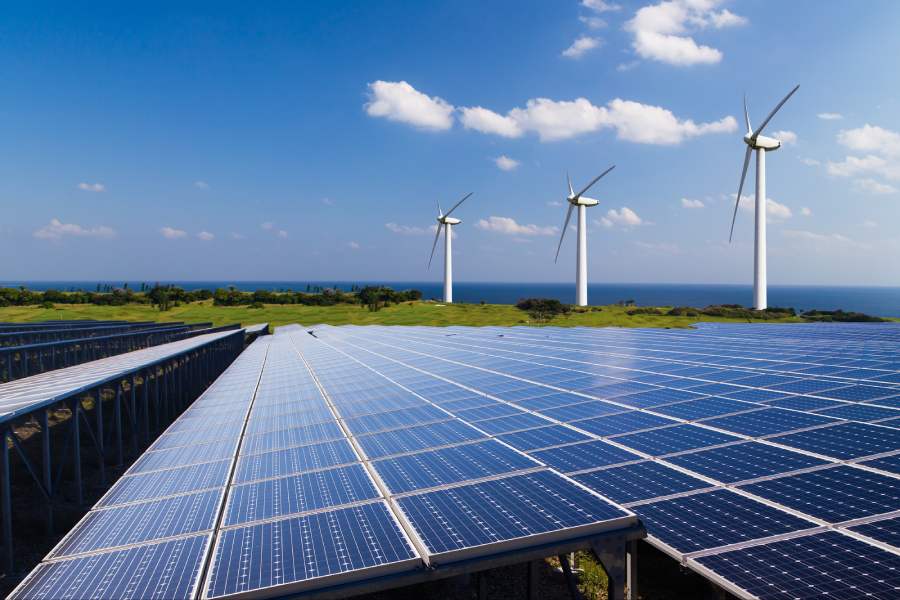Union finance minister Nirmala Sitharaman on Thursday announced a slew of measures covering the gamut of renewable energy sectors in the pre-election interim budget in line with the Centre’s commitment to achieving “net zero” by 2070.
“Viability gap funding will be provided for harnessing offshore wind energy potential for an initial capacity of one gigawatt. A coal gasification and liquefaction capacity of 100 MT will be set up by 2030. This will also help in reducing imports of natural gas, methanol and ammonia,” the finance minister said.
“Phased mandatory blending of compressed biogas (CBG) in compressed natural gas (CNG) for transport and piped natural gas (PNG) for domestic purposes will be mandated. Financial assistance will be provided for procurement of biomass aggregation machinery to support collection,” she added.
The government is also looking to expand the adoption of electric buses in public transport networks through payment security mechanisms.
“Through rooftop solarisation, one crore households will be enabled to obtain up to 300 units of free electricity every month,” the finance minister said while announcing a scheme of rooftop solarisation, adding that savings of up to Rs 15,000-18,000 annually from free solar electricity are expected per household while surplus power could be sold to distribution companies.
The finance minister has also proposed the launch of a scheme of bio-manufacturing and bio-foundry to provide environment-friendly alternatives such as biodegradable polymers, bio-plastics, biopharmaceuticals and bio-agri-inputs.
“Announcements such as viability gap funding for offshore wind energy, rooftop solarisation, setting up of coal gasification and liquefaction capacity, and financial assistance for procurement of biomass aggregation machinery will provide a boost to the power and renewable energy sector and will help India achieve their ‘Net Zero’ target,” said Jimit Devani, partner, Deloitte India.
Crisil Ratings director Ankit Hakhu said: “The plan for supporting solar rooftops in 1 crore households augurs well for developers and module manufacturers as it will bump up rooftop demand. It will also be attractive for households given the potential to save electricity costs of Rs 15-18,000 per annum per household.”
“Coal gasification is important for India as it will reduce our dependency on imports and promote self-reliance and energy security. It will also help many other industries by replacing oil and natural gas and have a multiplier effect,” said Balasaheb Darade, founder and managing director of New Era Cleantech Solution.










